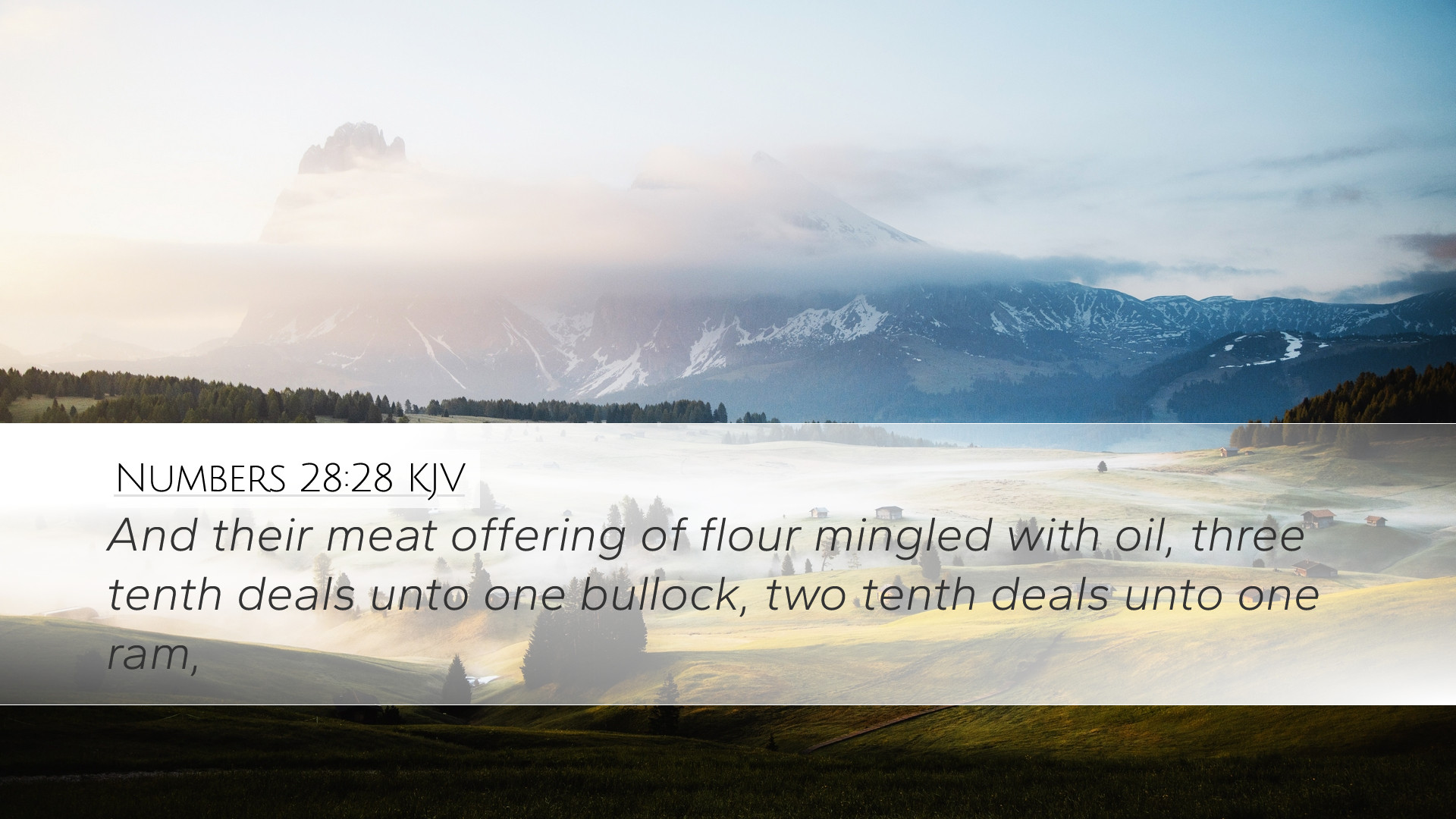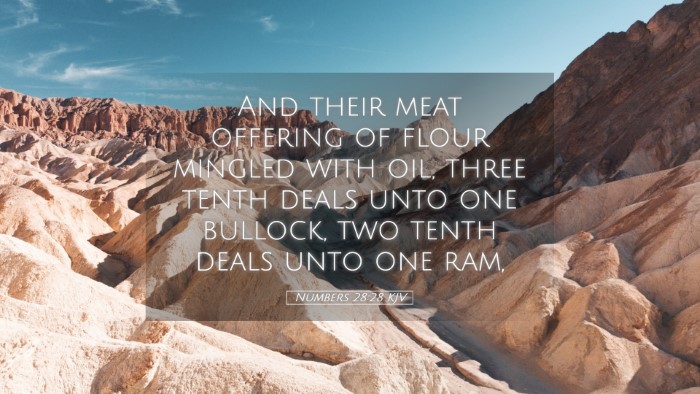Commentary on Numbers 28:28
Numbers 28:28 states: "And one tenth deal of flour mingled with one quarter of an hin of beaten oil for a meat offering." This verse is part of a larger passage where God instructs Moses regarding the sacrifices and offerings to be made by the Israelite people during their worship. Below is a summary of insights drawn from public domain commentaries, which provide meaning and context to this scripture.
Contextual Overview
This passage falls under the larger contextual theme concerning the offerings made to the Lord, highlighting the expectations of the Israelites in their worship. The instructions provide clarity on how sacrifices should be conducted effectively within the community of believers, emphasizing devotion, obedience, and the proper manner of approaching God.
Commentary Insights
1. Requirement of Offerings
Matthew Henry emphasizes that the precise delineation of offerings serves to underline God’s holiness and the need for His people to approach Him with care and reverence. The specific details reflect God's desire for His people to acknowledge Him through their offerings: "God requires nothing less than the best from His people." This can apply both in a ritualistic sense and in the broader lifestyle of believers, implicating that every aspect of life should be an offering to God.
2. Symbolism of Flour and Oil
Albert Barnes notes the significance of flour and oil in spiritual practices. Flour signifies sustenance and nourishment, often associated with the Word of God, which is likened to ‘our daily bread’. The oil, a metaphor for the Holy Spirit, symbolizes anointing and sanctification. The two ingredients, when combined, demonstrate the holistic offering of one’s life—mind, body, and spirit—in service of God.
3. Spiritual Lessons from Offerings
Adam Clarke highlights the spiritual implications of this offering. He discusses how the offering of flour mixed with oil serves as a reminder of the need for purity and sincerity in one’s devotion. Clarke states, "Every offering must be mingled with the oil of the Spirit; otherwise, it becomes unholy before God.” This delineation encourages individuals to incorporate spiritual fervor and sincerity into their worship practices.
4. Community and Individual Worship
This verse emphasizes both the communal and individual aspects of worship. Matthew Henry explains that these offerings were intended for the common good, served as a means to unite the community in worship. Yet they also point to the individual responsibility of each member to participate actively in these offerings. "Every believer is called to contribute their part, showing that worship is not merely a collective action but a personal commitment fused into the corporate body."
5. Devotion in Detail
Albert Barnes also focuses on the ‘tenth deal of flour’ and ‘quarter of an hin of beaten oil’, suggesting that meticulous care must accompany our diligence in worship. This meticulousness signifies the devotion required by believers as they present themselves to God. It pushes individuals to reflect on how they prepare their offerings—whether material or spiritual—before God, reinforcing the notion that ‘how’ one worships is as significant as ‘what’ one offers.
6. Application for Today’s Believers
The teachings embedded in Numbers 28:28 can be directly applied to today’s church context. Adam Clarke posits that modern believers must consider their personal conduct and offerings: "In presenting ourselves to God, we should strive to do so with the best of our intentions and efforts, blending daily life with spiritual nourishment." Thus, finding ways to integrate worship into daily action can uphold the spirit of this instruction.
Conclusion
In Numbers 28:28, we find an admonition for the believer that resonates profoundly with the call to holiness and devotion in worship. The insights from the public domain commentaries of Matthew Henry, Albert Barnes, and Adam Clarke shed light on the intricate requirements of offerings, the symbolism of the materials used, and applicable lessons for personal and community worship. Engaging with these reflections encourages a deeper awareness of how believers might respond meaningfully to God’s call through their acts of worship and daily living.


